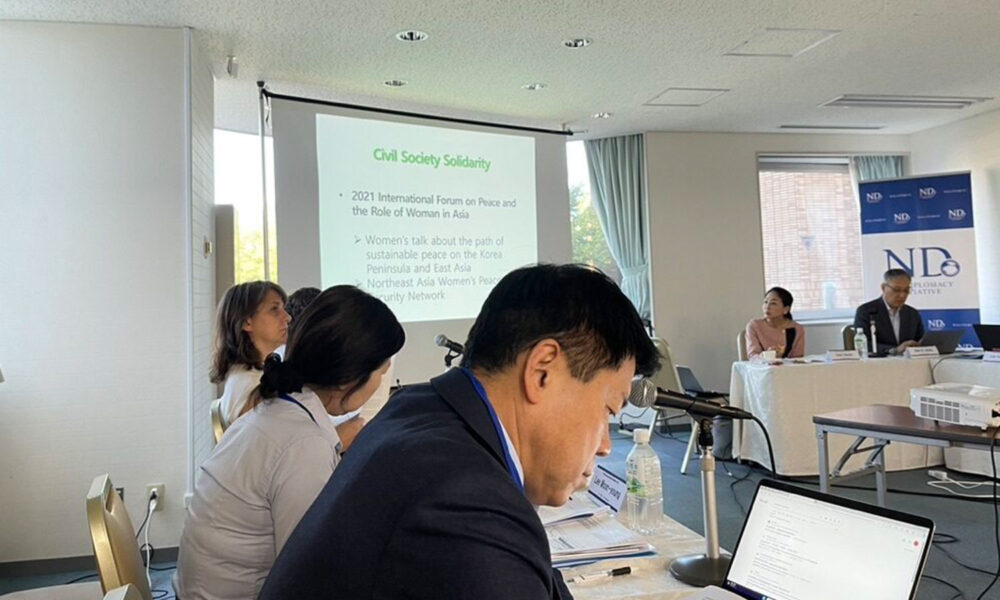Earlier this month the Union of Concerned Scientists, together with Japan’s New Diplomacy Initiative and Korea Diplomacy Plaza, brought more than thirty-three participants from the United States, Japan, the Republic of Korea and China together in Tokyo for the inaugural meeting of the East Asian Quadrilateral Dialogue. We were joined by six Japanese Diet and Korean National Assembly members, who made valuable contributions to the discussion and will carry our message to their fellow legislators.
The Inclusive Quad
This “Inclusive Quad” is a civil-society response to growing concern about our ability to preserve peace and prosperity in East Asia. We are disappointed that our governments are turning away from global cooperation and embracing great power competition. We are worried that military conflict may follow, and that such a conflict could result in a nuclear war.
We hear a lot of encouraging rhetoric from our political leaders about wanting to preserve an existing international order based on the rule of law. But they seem to have forgotten that this international order was built on the lesson its creators learned from World War II, which is that great power competition leads to war.
Our politicians are weaponizing everything to win, including people’s hearts and minds. Their language intentionally feeds suspicions and hardens divisions that make people afraid and angry. Their policies make it increasingly difficult to trade and to talk, to associate and to cooperate, and to establish the trust that is essential to any functional human community.
The inaugural East Asian Quadrilateral Dialogue is the beginning of an attempt by ordinary people to rebuild trust, community and cooperation between the United States, the Republic of Korea, Japan, and China. If our governments are currently incapable of doing this, then civil society must step into the breach and take on an essential responsibility our political leaders are neglecting.
Over the next several years we hope to strengthen and raise our voices in our respective domestic debates over our relationships with each other and with China. We will offer a compelling and hopeful alternative to the pessimistic narrative about great power competition, which is often described as a natural law that people must live with, or an external force, like gravity, that is beyond our control. It’s not. Great power competition is just a concept, a perception, not a fact. And perceptions can be changed.
Humanity cannot meet the many challenges of this historical moment without hope, and without rebuilding trust, community and cooperation. Those challenges include responding effectively to the climate crisis, managing new technologies like artificial intelligence, preventing future pandemics, and adjusting international economic relationships that benefit a tiny few at the expense of many. Inequity and injustice are the root causes of the fear and anxiety that politicians try to relieve by wasting precious human and fiscal resources, and more importantly wasting time we do not have, building up their militaries and preparing for war.
We are confident that most people within our respective countries understand, even if our current political leaders do not, that trust, community and cooperation are essential to sustaining hopeful and successful human societies. We believe that sooner or later – hopefully sooner – our governments will come to recognize that great power competition is a dead end. We will show, through our efforts, that rebuilding a cooperative international order is not only a better way forward, but that it is possible.

